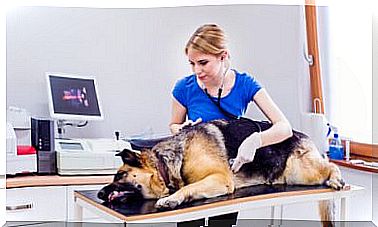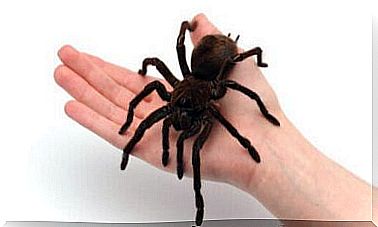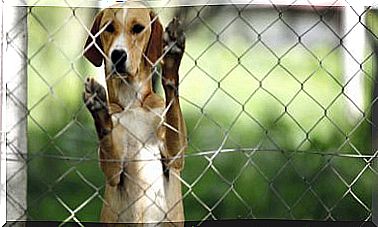Why Doesn’t My Dog stop Crying?
Living with a dog is an experience full of intense and exciting moments. However, sometimes some of these are difficult to deal with, such as when the dog won’t stop crying and you don’t know why.
This situation of pain and concern for both parties can cause great sadness in the owner, who does not know how to help his pet. What to do when a dog won’t stop crying? And why does it happen? We will get back to you below.
How do dogs cry?
The dog is a species that has accompanied humans for so many millennia that it is easy for us to know when the animal is crying, even if it does not do so with tears and sobs. In dogs, crying is characterized by repetitive moans and barks and even howls.
The function of crying is the same as in humans: to express a negative mental state, such as sadness, and to awaken empathy in others. It is one of the most common ways of asking for help in social animals, although it manifests itself differently in each species.
Why doesn’t my dog stop crying?
The situations where a dog won’t stop crying can be many, so it is necessary to identify the cause of this behavior before practicing any solution. Here are several scenarios where dogs can cry nonstop.
My dog cries when I leave the house
If your dog doesn’t stop crying when you leave for work or is home alone, separation anxiety disorder could be the cause. While it doesn’t fall into the category of the typical problem, it’s not hard to imagine that your dog may experience distress if you leave and don’t know when you’ll be back.
In the case of this disorder, the roots are usually in hypertherapy or poor emotional education. Additionally, crying is often accompanied by abnormal stools or destruction of furniture.
My dog doesn’t stop crying when he wants something
This behavior, in the first place, is not something to worry about – the dog simply calls your attention to ask for something. The problem arises when crying does not stop or when it is accompanied by other unwanted behaviors.
My puppy cries incessantly
The developing puppies are sponges, both in a positive and a negative sense: if it is good that they learn very quickly, it is also true that they take bad habits very quickly. While it is important to identify the emotional needs of your adult dog, during his childhood it is even more so. These are some of the reasons a puppy can cry nonstop:
- Fearful or nervous: In both puppies and adults, the fear can become chronic or lead to a phobia. In childhood, it is especially important to make your dog feel safe and loved.
- Wants to get attention – this is usually learned behavior. It is natural for dogs to get your attention by barking or crying, but if you are afraid it will become a habit, it is best not to react.
- Tackle Something New: Shy puppies can feel insecure in situations they have never experienced, such as the arrival of another dog or their first visit to the vet.
What to do when the dog doesn’t stop crying?
The first step, as mentioned above, is to identify the causes of this behavior. Once the situation has been defined correctly, you can follow these basic tips.
Start basic training
More than training, it’s about learning how to communicate effectively with your dog. If the dog does not understand what you want from him, he will feel insecure and confused, which will aggravate the anxious and sad behaviors.
If your dog doesn’t stop crying, you need to make sure he gets what he needs
Verifying that all of your basic needs are covered is essential before starting any treatment. Keep in mind that it may not be as easy as it sounds, because each dog needs a different amount of attention, affection, and activity. It’s not just about food and water.
Help him overcome the fear
If your dog does not stop crying because something scares him or has developed a phobia, your support and love will be essential to overcome the problem. The usual procedure is to progressively expose the dog to what terrifies him, so that he gets used to it little by little.
One last tip if your dog doesn’t stop crying
Behavioral problems can be corrected at home with patience and persistence, but dogs that are more sensitive – or those who come from an abusive situation, for example – can develop severe behavioral disturbances due to fear or anxiety.
Therefore, if the situation escalates and you find that you are unable to handle it, don’t be afraid to go to a specialist. You will alleviate your worry and your dog will be able to live more peacefully, because he will know that with you he can overcome any difficulty.









